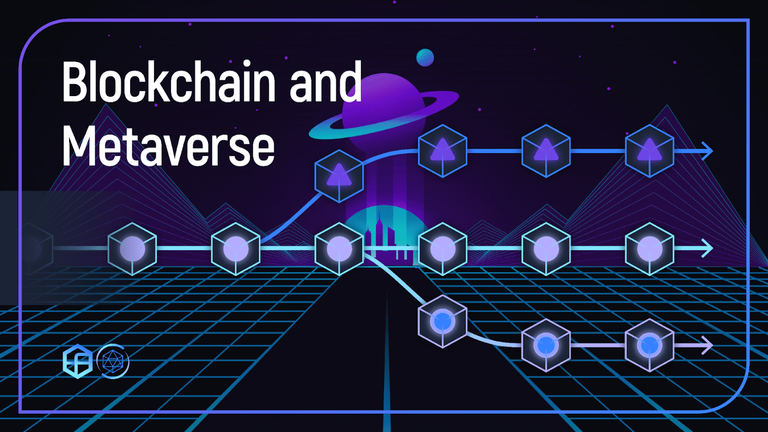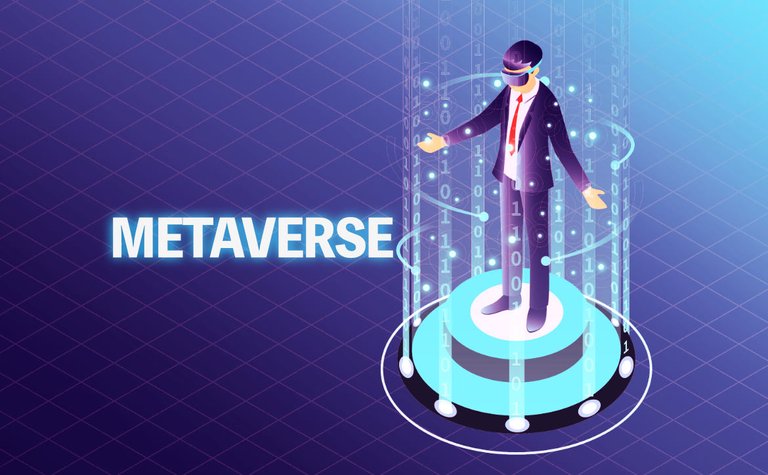Understanding Synergy Between Blockchain And Metaverse
The innovation behind blockchain does not end at cryptocurrency as we explore the possibilities further. The idea of metaverse is perhaps one of the most interesting trends emerging on this platform. The users play in a virtual world, which is based on the blockchain technology. The metaverse comprises an interwoven community of independent virtual worlds that coexists within the same framework of protocols and standards. There are numerous types of such cyberworlds, including different kinds of the internet environment (e.g., social network, game platforms, e-commerce platforms, pedagogical environment). The fundamental characteristic that stands out for the metaverse is its use of blockchain as a means to ensure trustworthiness, security, and compatibility with other digital worlds.
Traditional virtual worlds constrain the users with respect to the norms governing the platforms as well as the unilateral jurisdiction of the owner. This may serve as a barrier for new entrants and suppress users creativity towards innovation. Compared to the metaverse which will be an open source and free to use platform where any user can upload or create content at will without interference.
The metaverse has one of the most attractive applications as a gaming option. As a result, there is a rise in blockchain technology and this enables developers to develop games based on decentralized networks, which have unique benefits that traditional gaming platforms lack. These include blockchain based games whereby players are issued with digital tokens to own and trade their in-game assets.
Understanding the Metaverse
Meta refers to “beyond” while verses refer to “universe”. Further, some people denote metaverse as an artificial world that individuals can move around. Neal Stephenson used the word metaverse for the very first time in the science fiction novel of 1992, called Snow Crash. The metaverse is termed as a common “fictional world” that is available for the public through a fibber optic network across the globe, with the projections being reflected on the virtual glasses. These sentiments could also be used in describing environments enhanced with virtual reality (VR) and augmented reality (AR).
The blockchain is important to the making of the metaverse because Web 3.0 is centered on decentralization and its future direction. Hence, even if one is creating a metaverse initiative, it should take place as a decentralized platform to support a decentralized web. Blockchain has played a vital role in decentralizing metaverse initiatives.
Blockchain is a shared electronic record system controlled by multiple computer networks operating independently from one another. The autonomy of the blockchain allows different entities to carry out transactions and have them entered into the blockchain by themselves, therefore, no central authority is required. It contains the records for transactions between individuals on the blockchain which are transparent and immutable, thereby implying that once it is recorded, one cannot alter the records. It is advantageous that the blockchain does not depend on trust. There is no need for trust among participants involved in a transaction since blockchain resolves the problem of double spending. In the end, using blockchain technology ensures there cannot be cases of fraud or identity theft.
Additionally, blockchain is a multi-node decentralized technology that syncronizes independently. A truly metaverse (blockchain based metaverse), would be fully independent, distributed and anyone can join, interact and add value if they wish.
The synergy between blockchain and Metaverse.
Metaverse and blockchain is a logical match. Blockchain is a perfect technology for powering the transactons and economy of the metaverse, given its distributed nature. Some of the means of using blockchain in the metaverse include:
Identity Management: The metaverse, in turn, has the potential of creating a robust and decentralized Identity system using Blockchain. It is used to prevent fraud and identity theft while also proving that one’s users are actually their users.
Digital ownership: One important advantage of blockchain technology is it enables safe and open ownership of digital assets. In a metaverse setting, this means that users have the right to purchase, sell, and own digital goods similar to actual items.
Decentralized Economy: Metaverse is a highly advanced economy, with its own currencies and markets. Metaverse will have a decentralized economy, in which people will generate, use, and sell tokens based on blockchain.
Secure Transactions: The metaverse might be secure and transparent with blockchain to handle its transactions. It involves all aspects that are linked to purchases of virtual good and services.
In conclusion
A great future awaits blockchain in a combined manner with metaverse, which creates an exceptional vision for the upcoming eras. With time, as the metaverse matures, blockchain is likely to emerge as the bedrock of economic activities and transactions in the metaverse. PWC, a multinational auditing and consulting company, projects that virtual reality and augmented reality will contribute 1.5 trillion dollars to the global economy in 2030, as compared to $46.5 billion in 2019. This means that blockchain will enable safe, clear and engrossing metaverse experience with respect to ownership of virtual assets, participation into the decentralized economics as well as assurance of digital identifications.



That was deep ... thank you for alerting us in advance to what is coming...
It’s a pleasure, thank you for stopping by.